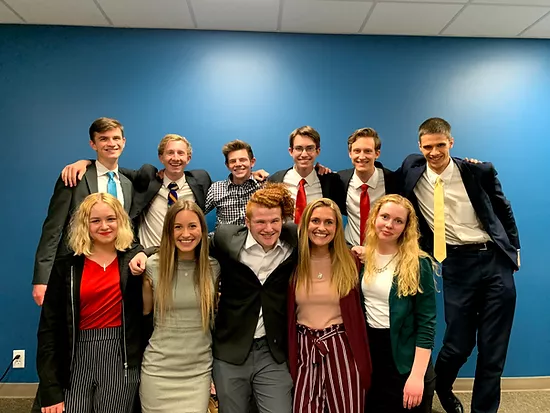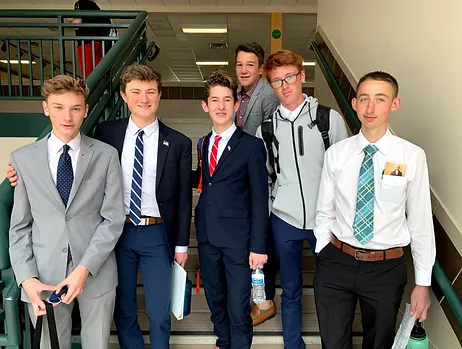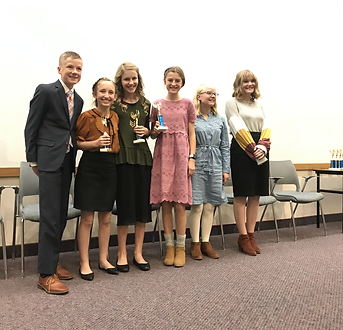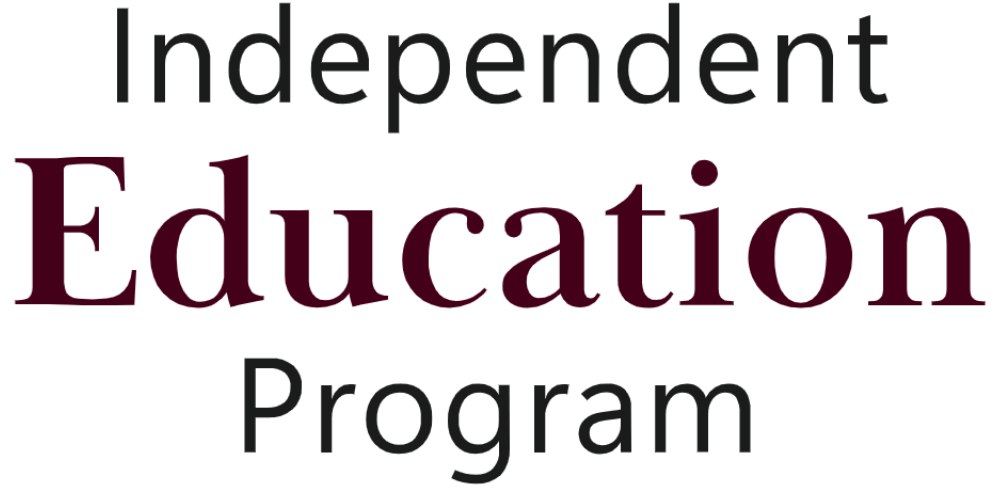The Wasatch Independent Debate League
In the Wasatch Independent Debate League, we are serious about creating the most exceptional, academically rigorous, and inspiring educational experience that a student can find.
This class is about speaking and debating, but is just as much about critical thinking, being able to organize thoughts, understanding important ideas and current events, and being part of a community of students striving to succeed. We want students to be able to debate, but it is more important to us that they develop the skills and mindsets which will prepare them to engage critically in communities, government, business, education, and life.
How the Class Works
Classes begin with half an hour of discussion and debate on current events, politics, moral issues, and big ideas. During this time students match wits with their teacher and are challenged to think more deeply than they ever have before.
Students gain thinking, speaking, and debating skills and apply them to events such as Impromptu Speaking, Spontaneous Argument, Extemporaneous Speaking, Oratory, Student Congress Debate, Presidential Debate, and Lincoln Douglas Debate.
In class, students spend their time thinking, discussing, researching, and, more than anything, speaking and debating because that is what makes the class exciting and that is how students learn best. As students in a Speech & Debate class, students are also members of the Wasatch Independent Debate League (WIDL) and compete in WIDL tournaments. Competitions are motivating and challenging growth oriented experiences. They also provide a community of successful people with whom students can engage.
The Core Skills of Speech & Debate
Speech & Debate is sometimes thought of as an elective subject - something good for students who want to pursue a career in politics or law. However, Speech & Debate fosters and develops two core skills that are vital for ALL students to learn and become proficient in.
#1: Effective Communication
This first, perhaps more obvious skill Speech & Debate cultivates, is effective communication. The ability to communicate well is one of the most fundamental aspects of living a successful life. For example, employers consistently indicate that solid communication skills are among the most important competencies they are looking for in employees.
Additionally, good communication is vital for healthy interpersonal relationships, leading, and daily activities. The ability to work with others is fundamentally tied to communication. And being able to connect and understand one another is an essential part of developing deep and meaningful relationships.


#2: Critical Thinking
The second core skill that Speech & Debate teaches is critical thinking. Critical thinking is a set of interrelated mental skills that enable a student to deal with concepts, arguments, and mental frameworks beyond a superficial level. Some of these skills include:
1. Identifying and understanding the structure of an argument
2. Evaluating the strength of the evidence supporting a claim
3. Approaching a subject objectively (or at least make a good effort)
4. Composing an argument
5. Considering source and potential motives
The skills which make up critical thinking make a student better prepared for life in a variety of ways. This includes helping students prepare for vocational life and personal relationships. But one of the most important ways that critical thinking prepares students is that it makes them better citizens. They can advocate for issues that are important to them while at the same time respectfully listen to and seek to understand opposing viewpoints. They can engage in discourse without becoming bitter toward anyone who disagrees. They can avoid getting swept up in fantastic and apocalyptic claims of all sorts, including political claims. And exposure to the sorts of subjects that make students think critically gets them interested in broader society overall. The end result is that they are better prepared to operate as an adult in a complex world.
Commitments for Parents
Speech & Debate Tournaments and Judging
Speech & Debate includes and requires attendance of at least 4 all day Saturday Tournaments each year for each student. They are held monthly and each student needs to attend at least 4 of the 7. They are held up and down the Wasatch Front and online. Make sure you are willing to commit to attending these.
Each parent of a student in a Speech & Debate class agrees to judge all day in person or online at one tournament per student enrolled. This is a full day commitment and it is imperative that all parents judge during the year. We can't run the program without this component. Plus it's a great experience and you will learn so much about Speech & Debate!
Parents: Is My Student Ready?
For beginning classes, students generally start at age 13. If your child is 12 and you want to know if taking the class is a good fit, ask yourself these questions:
-
Does your child want to take the class on their own, or are you having to push them? A desire to begin speaking ones thoughts is a good indication that a student’s mind is getting ready for Speech & Debate.
-
Is your child beginning to consider the world beyond their immediate experience? If they are, this demonstrates that they are moving into the world of higher order cognition and may be ready to take on Speech & Debate. If they are not, then you may wish to have them wait another year as they may find Speech & Debate frustrating.
-
Is your child ready to start doing homework every week? This is a requirement of the class, and there is little in class time to address study skills. Students who aren’t ready
to do homework on a weekly basis will be more likely to flounder in the class.

If you want to consider an intermediate class, consider the following items:
-
Only older and more mature students are generally allowed to skip beginning.
-
There is content taught in beginning classes which is not revisited in later classes.
-
Students in advanced classes do a great deal of self directed work.
